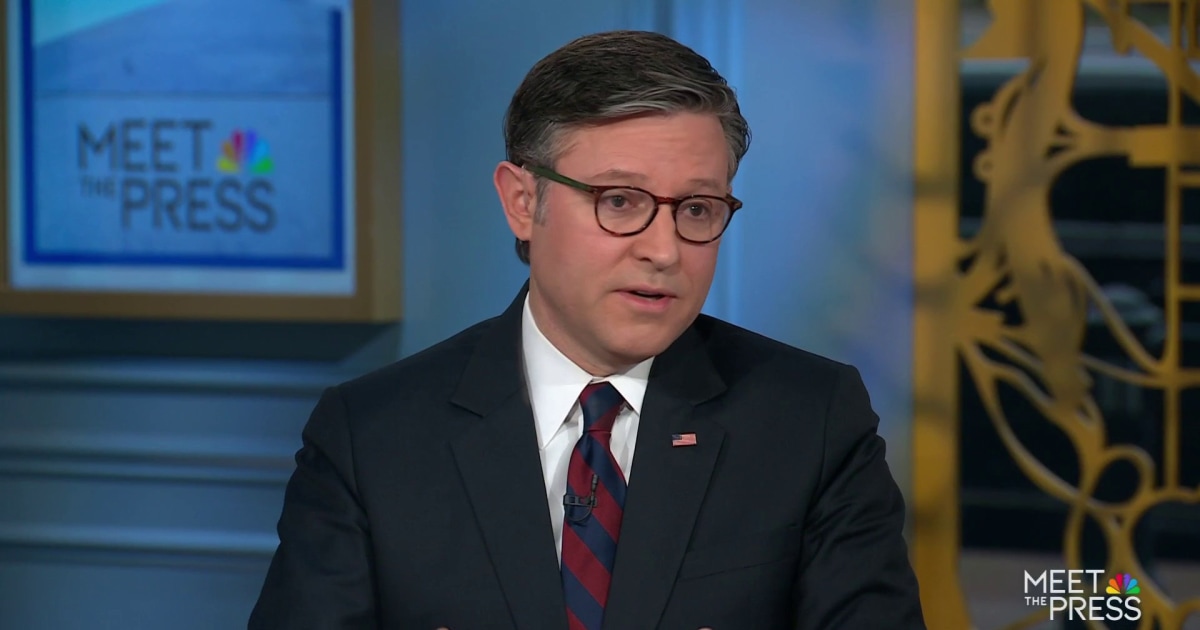Johnson’s Bold Declaration: Enforcing Law Amid TikTok Ban Implementation
In a decisive move, Speaker Johnson has made it clear that the government is committed to enforcing the law as the TikTok ban goes into effect. This bold declaration is not just a statement; it signifies a turning point in the ongoing discourse surrounding digital privacy, national security, and the burgeoning influence of social media platforms. As the TikTok ban unfolds, a myriad of questions arise concerning its implications for users, businesses, and the future of the platform in the United States.
The TikTok Dilemma
TikTok, the popular short-video platform owned by the Chinese company ByteDance, has faced intense scrutiny from U.S. lawmakers for its data privacy practices and potential links to the Chinese government. Concerns about data security have spurred a broader conversation about how foreign-owned tech companies operate in the U.S. and their capacity to harvest sensitive user data.
With Speaker Johnson’s bold declaration regarding the enforcement of the TikTok ban, the implications extend beyond mere access to the app. Users and businesses that have integrated TikTok into their marketing strategies and daily communications must now navigate a complex landscape. As the ban takes effect, here are several key factors to consider:
- Impact on Users: Millions of Americans use TikTok daily for entertainment, education, and social connection. The enforcement of a ban could lead to a significant cultural shift as users look for alternative platforms.
- Business Consequences: Many brands have leveraged TikTok for marketing and customer engagement. A sudden ban could disrupt business models, leading to revenue losses and a scramble to find new channels.
- Legal Ramifications: Enforcing the ban raises questions about the legality of such actions. How will the government monitor compliance, and what penalties will be imposed on those who continue to use the platform?
Understanding the Enforcement of the TikTok Ban
Johnson’s declaration emphasizes the government’s resolve to uphold the law, indicating that enforcement mechanisms will be put in place. This raises several critical points:
- Monitoring and Compliance: The government will likely need to outline how it plans to monitor compliance with the ban. This could involve collaboration with internet service providers or app stores to restrict access to TikTok.
- Public Awareness Campaigns: To ensure users are informed about the ban, public awareness campaigns may be necessary. This could include educational resources on why the ban is being enforced and what alternatives are available.
- Legal Framework: The legal framework surrounding the ban will be crucial. Legislators may need to define the penalties for continued use, which could include fines or other legal actions against individuals and businesses.
Alternative Platforms and User Adaptation
As users face the reality of the TikTok ban, many will inevitably seek alternative platforms. This shift could lead to a rapid evolution in the social media landscape. Here are some alternatives that might gain traction:
- Instagram Reels: A feature of Instagram that allows users to create short videos, Instagram Reels may attract former TikTok users looking for similar functionalities.
- Snapchat: Known for its ephemeral content, Snapchat offers creative tools that could appeal to TikTok’s user base.
- YouTube Shorts: As a direct competitor, YouTube Shorts provides a platform for video content and may benefit from TikTok’s absence.
Transitioning to these platforms will require users to adapt their content creation strategies and marketing approaches. Brands that had dedicated strategies for TikTok may need to pivot quickly to maintain engagement with their audience.
The Broader Implications for Digital Privacy and National Security
Johnson’s enforcement of the TikTok ban is not merely a reaction to a specific app; it is part of a larger narrative surrounding digital privacy and national security. The implications of such actions extend into several critical areas:
- Precedent for Future Regulations: The TikTok ban could set a precedent for how the U.S. government might regulate foreign-owned tech companies in the future. This could lead to more stringent regulations across the tech landscape.
- Public Trust in Digital Platforms: As users become more aware of data privacy issues, their trust in digital platforms may wane. This could lead to a demand for greater transparency and accountability from tech companies.
- International Relations: The ban may strain U.S.-China relations, particularly in the tech sector. Diplomatic discussions could revolve around data privacy and digital sovereignty.
Speaker Johnson’s bold declaration signals a significant shift in the U.S. government’s approach to enforcing laws regarding foreign-owned digital platforms. As the TikTok ban takes effect, users and businesses must navigate an evolving landscape. The implications of this decision reach far beyond the app itself, affecting digital privacy, national security, and international relations.
While the immediate future may seem uncertain, it also presents an opportunity for innovation and adaptation. As users explore alternative platforms and businesses adjust their strategies, the digital landscape will continue to evolve. Ultimately, this decisive move underscores the importance of safeguarding data privacy and national security in an increasingly interconnected world.
See more Future Tech Daily

